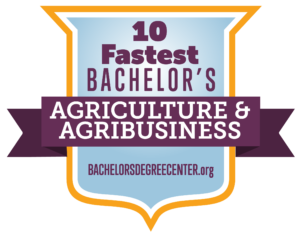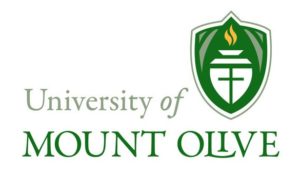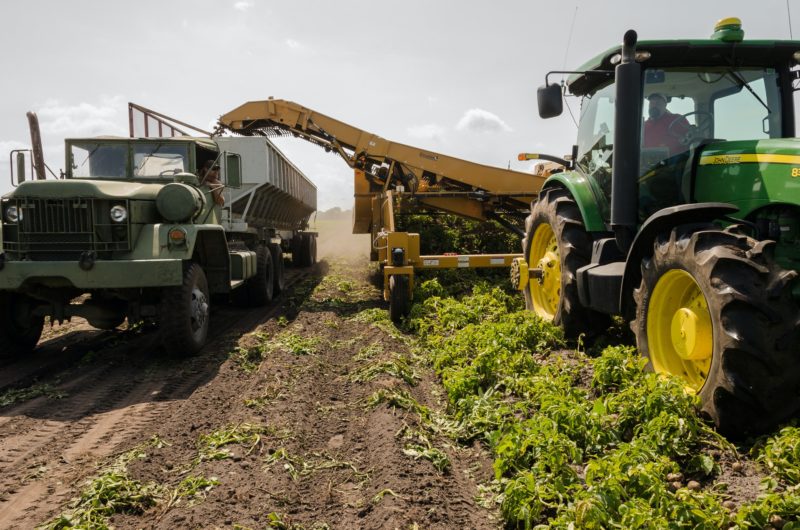
Key Information:
- Penn State World Campus offers the #1 fastest online agriculture and agribusiness bachelor’s degree program.
- Many programs are designed for those already working in agriculture, enhancing their current skills and knowledge.
- The curriculum is designed to equip students with practical skills applicable in agriculture and agribusiness careers.
An accelerated agriculture degree can be are ideal for farmers. Why farming degrees online? You can schedule your coursework around the work on the farm and do it when it’s convenient. You already have the experience you need so it is just a matter of getting the degree so you can prove you are qualified. The one drawback of online education is the lack of practical experience, and that is not a drawback if you are already doing the work.
The biggest advantage of an accelerated agriculture degree is that you can get it done faster. This does not mean you skip anything, it is just that you study faster. Accelerated agriculture degrees help you get done faster, so you can get to where you want to be faster. These programs are structured so you can work on more online ag degrees at a time. Universities are different in how they approach this, but some will allow you to work on two at the same time. Or, if you want to pursue a master’s accelerated agriculture degree can get you qualified for a master’s program faster.
Methodology: Ranking the Fastest Online Agriculture Degree Programs
An accelerated program offers many benefits for working students, but speed isn’t everything. That’s why Bachelor’s Degree Center also ranks legitimate, accredited programs by factors like cost, job market reputation, and potential salary, using data from Niche and IPEDS. So read on to learn the best online agriculture degrees for speed!
1. Penn State World Campus

Penn State World Campus offers a BS in Agribusiness Management that mandates degree candidates to finish at least 120 semester hours – all online. This accelerated agriculture degree from PSWC offers students an interdisciplinary curriculum that prepares students for careers as marketing coordinators, production supervisors, or pricing analysts, among others. Classes for this undergraduate degree include problem-solving, the economics of the food system, and food product marketing, to name a few. Note that Penn State World Campus has no limit on the number of transferrable credits.
Founded as a distance learning arm of Pennsylvania State University in 1998, Penn State World Campus now serves nearly 15,000 students each year. Penn State World Campus offers more than 140 graduate and undergraduate degree programs, as well as many certificate programs online.
What We Like: US News & World Report recognizes many of Penn State World Campus’s online degrees among the best available in the United States.
Degree: BS in Agribusiness Management
Penn State World Campus BS in Agribusiness Management
2. Kansas State University

Kansas State University offers a Bachelor’s in Animal Science and Industry with two curriculum tracks in Animal Products or Product Management. Kansas State University’s accelerated agriculture degree program requires a total of 120 semester hours; however, only the last 30 semester units must be completed at Kansas State University – all available online. Classes for this undergraduate degree in animal science and agribusiness include principles of biology, organic & biochemistry, poultry products technology, animal science, nutrition, and quality assurance, plus an internship, among others.
Kansas State University (Kansas State) was established as a land-grant school under the Morrill Act in 1863. The school’s college-town campus in Manhattan covers more than 600 acres and serves about 20,750 students each year.
What We Like: Kansas State University is recognized to hold the distinction of being the first school in the state that was publicly funded.
Degree: Bachelor’s in Animal Science and Industry
Kansas State University Bachelor’s in Animal Science and Industry
3. Illinois College

Illinois College offers a BA in Agribusiness Management that is available entirely online. Illinois College’s 18-month accelerated agriculture degree program permits up to 88 credit units to be transferred, if eligible. Core coursework for Illinois Colleges agriculture degree includes farm management, agricultural finance, emerging issues in agriculture/natural resources, business ethics, principles of economics, and marketing, plus an internship and capstone project, among others.
Illinois College is a private school with an affiliation with the United Church of Christ that was founded as the second higher learning institution in Illinois, with the help of the famous ‘Yale Band.’ About 1,100 students attend classes at Illinois College, which serves as Illinois’ first medical institution of higher education in the mid-1800s.
What We Like: Illinois College holds the distinction of being the first college in Illinois to award a degree in 1835.
Degree: BA in Agribusiness Management
Illinois College BA in Agribusiness Management
4. Fort Hays State University

Fort Hays State University (Fort Hays) offers two of Kansas’s best-accelerated agriculture degree programs with its BS in Agriculture with an academic track in Agricultural Leadership or the school’s BS in Agricultural Business. Each of Fort Hays State University’s baccalaureate agriculture degrees requires degree candidates to complete a minimum of 120 semester units. Classes for either degree include farm management, agricultural law/policy, finance, and technology in agriculture, to name a few.
Founded as a public school in 1902 as a branch normal school, Fort Hays State University now operates as a space-grant school with a student enrollment that nears 16,000 undergraduate and graduate students.
What We Like: The original campus of Fort Hays State University was once a military outpost on the western frontier that was abandoned in the late 1880s.
Degree: BS in Agricultural Business, BS in Agricultural Leadership
Fort Hays State University BS in Agricultural Business, BS in Agricultural Leadership
5. University of Mount Olive

The University of Mount Olive offers a BA in Agribusiness that can be completed 100% online in only 24 months for those students who have already completed their associate degree. The University of Mount Olive’s accelerated agriculture degree program includes classes like agricultural economics, agriculture law, rural development, agricultural marketing, and environmental/natural resources, ethics and decision making, and leadership in rural communities, to name a few.
The University of Mount Olive was established as a junior college in 1951. The university remains affiliated with the Free Will Baptists and serves approximately 3,950 students each year.
What We Like: The University of Mount Olive is about an hour to the south and east of Raleigh and about 70 miles from Wilmington, on the coast.
Degree: BA in Agribusiness
University of Mount Olive BA in Agribusiness
6. University of New England

The University of New England offers a Bachelor of Agriculture degree program that can be complete in only three years if studying full-time or within ten years for part-time students. In addition, this accelerated agriculture degree program from the University of New England offers students the option of finishing the degree as a Bachelor of Science degree in the school’s honor program. Degree candidates have the option of four academic concentrations in technology, animal production, general agricultural production, and plant production.
The University of New England is a multiple-campus higher learning institution that was established in 1831 as a seminary. The school maintains a campus in Biddeford and Portland, ME, and another international campus in Morocco that serves nearly 13,500 students each year.
What We Like: The University of New England holds the distinction of being the largest private higher learning institution in the state of Maine.
Degree: Bachelor of Agriculture
University of New England Bachelor of Agriculture
7. University of Northwestern Ohio

The University of Northwestern Ohio’s Occupational Professional College offers a Bachelor’s degree program in Agribusiness Management that is ranked among the best accelerated agriculture degree programs in Ohio. The University of Northwestern Ohio’s twenty-one-month baccalaureate degree is available 100% online, with more than 90% of the program’s graduates either continuing their studies or employed. Graduates of the University of Northwestern Ohio’s bachelor’s degree in agriculture enter the workforce in the areas of farming, ranching, horticulture, or agricultural management, among others.
The University of Northwestern Ohio (Northwestern Ohio) is a private institution of higher education that was founded in the early 1920s as a school of commerce. The University of Northwestern Ohio maintains an open admissions policy and has approximately 4,450 students attending classes each year.
What We Like: The University of Northwestern Ohio is organized into five colleges/schools – business health, graduate studies, occupational professionals, and applied technology.
Degree: Agribusiness Management Bachelor’s
University of Northwestern Ohio Agribusiness Management Bachelor’s
8. Greenville University

Greenville University offers a BS in Agribusiness that requires the completion of a minimum of 120 credit units. Students can complete this accelerated agriculture degree program in less than two years if transferring the maximum allowable eligible credits. Classes for this agribusiness degree from Greenville University include statistics for social scientists, environmental science & stewardship, plants & people, field biology, and survey of the plant kingdom, to name a few.
Greenville University is a private institution of higher education that was founded in 1892 as a college and is affiliated with the Free Methodist Church. The university’s small-town campus is home to about 900 students, who mostly live on campus or nearby college-owned houses. The university was the first campus in the nation to install a wireless network across its entire campus.
What We Like: Greenville University’s students must adhere to a strict Christ-honoring code.
Degree: BS in Agribusiness
Greenville University BS in Agribusiness
9. Unity College

Unity College, American’s Environmental College, offers a Bachelor of Science degree (BS) in Sustainable Business Management with a concentration in Sustainable Food and Farming that can be completed entirely through the school’s distance learning platform. Applicants for Unity College’s agriculture bachelor’s degree have the potential of transferring up to 90 semester credits if the credits are eligible. Available concentrations for Unity College’s accelerated agriculture degree program allow for students to study as part-timers or full-time students.
Unity College was established as a liberal arts school in 1965. Unity’s campus covers more than 200 acres and is home to approximately 1,250 students. Unity College’s programs are based on sustainability sciences, referencing natural resources and the environment. Despite closing its campus, Unity College had the largest incoming class for the Fall of 2020.
What We Like: Unity College athletes won the NSCAA cross country championship in 1996.
Degree: BS in Sustainable Food and Farming
Unity College BS in Sustainable Food and Farming
10. Atlantic International University

Atlantic International University offers a BS in Agriculture degree program that is available 100% online. The core curriculum for this accelerated agriculture degree program from Atlantic International University includes agribusiness sales, animal breeding, agribusiness finance, animal science, animal nutrition, marketing of agricultural productions, the introduction of horticulture, financial accounting, and agribusiness management, to name a few. Additionally, AIU’s undergraduate in agriculture requires students to complete a thesis project.
Established in the late 1990s, Atlantic International University is a for-profit school that offers online learning exclusively. Atlantic International University seeks to offer cutting-edge, online programs that offer student professional and personal development options. Atlantic International University offers programs at the baccalaureate, graduate, and doctoral levels.
What We Like: Atlantic International University is accredited by the British ASIC – the Accreditation Services for International Schools/Universities/Colleges.
Degree: Bachelor of Agriculture
Atlantic International University BS in Agriculture
What are the Advantages of an Accelerated Agriculture Degree?
An accelerated agriculture degree does not mean less than. In fact, admission requirements for accelerated programs are more stringent than they are for traditional colleges. There may be minimum GPA requirements, experience in the field, professional certifications to show you are capable of taking in the information faster.
An accelerated agriculture degree or soil science degree will cost less, partly because it takes less time. In some cases, the time is cut in half, but cutting the time required by a third is more common. If you are a farmer, you may need to get the classwork done, so you can get back to the farm.
Another advantage of online courses is that you do not have to pay out-of-state tuition.
How Long Does an Online Agriculture Degree Take?
How long does it take to get a degree in agriculture depends a lot on the student. A four-year traditional online agricultural science degree is designed to get you a degree in four years. If you attend a traditional college and follow the normal schedule that is how long it takes. You can get it done faster by going to summer school and taking the largest load of classes allowed.
How long does it take to get a degree in agriculture, online agronomy degree, or life sciences degree is changed drastically when you do it online. With an agriculture degree online, you work when you want and as hard as you want. If you can do a semester of work in one month, that would be remarkable, but you would get full credit for doing it.
If you have a high school diploma, an associate’s degree generally takes two years, and you get a certificate. How long does it take to get a degree in agriculture at a traditional school is four years, two or three years for a master’s, and at least four years for a doctorate.
Getting agricultural degrees online will be much faster and it depends on how hard you want to work to get it done. An ag degree online program could be done as fast, or faster than an accelerated program at a traditional college. Students interested in becoming agricultural engineers can also get an online master or a doctorate through online programs.
What If I Don’t Need a Bachelor’s?
A bachelor’s degree is the standard degree, but it does not fit everyone. Agricultural education takes many forms. Online agriculture certificates might be what you need if you don’t need the full degree or can’t take the needed time. Agriculture certificates online may be good for people in the agricultural industry who need to learn just the basics. If you wanted to go to work on a farm but had little experience or knowledge, a certificate in agriculture online could be the education you need.
Agriculture certificate programs online can qualify you for jobs in sales, farming, natural resources communications, horticulturists, and many other things. It could qualify you to be a vet-tech and could be good preparation for veterinarian school.
More respected traditional universities are offering online agriculture certificate programs, which gives them more credibility. Certificate programs can also save you financial aid costs. Online agriculture certifications may be done with different areas of focus as well.
Here are four common specializations for agriculture certificates. There can be other varieties at various colleges and universities.
- Management, business, or sales
- Science and engineering.
- Food and biomaterials production
- Education, communications, and government services.
In an online program, ranchers may learn ranch management, or farmers may learn sustainable agriculture practices. An online degree program can open career paths in many areas, and a master’s degree goes farther still. Today students in agriculture programs can get all of their credit hours, including electives and minors, totally online.
Another possible option is for online students to take individual classes. If you have a job, or are a farmer, and need training in a specific area for your own improvement you may not need a degree at all. You can take individual classes either through online programs or at traditional universities.
You may also go on to a graduate degree. A college of agriculture, like Oregon State University or the University of Tennessee, offer graduate programs in more specialized areas like sustainable agriculture and agribusiness.
Related Rankings:
25 Best Bachelor’s in Agriculture and Agribusiness
15 Best Online Bachelor’s in Agriculture and Agribusiness
10 Most Affordable Bachelor’s in Agriculture and Agribusiness
